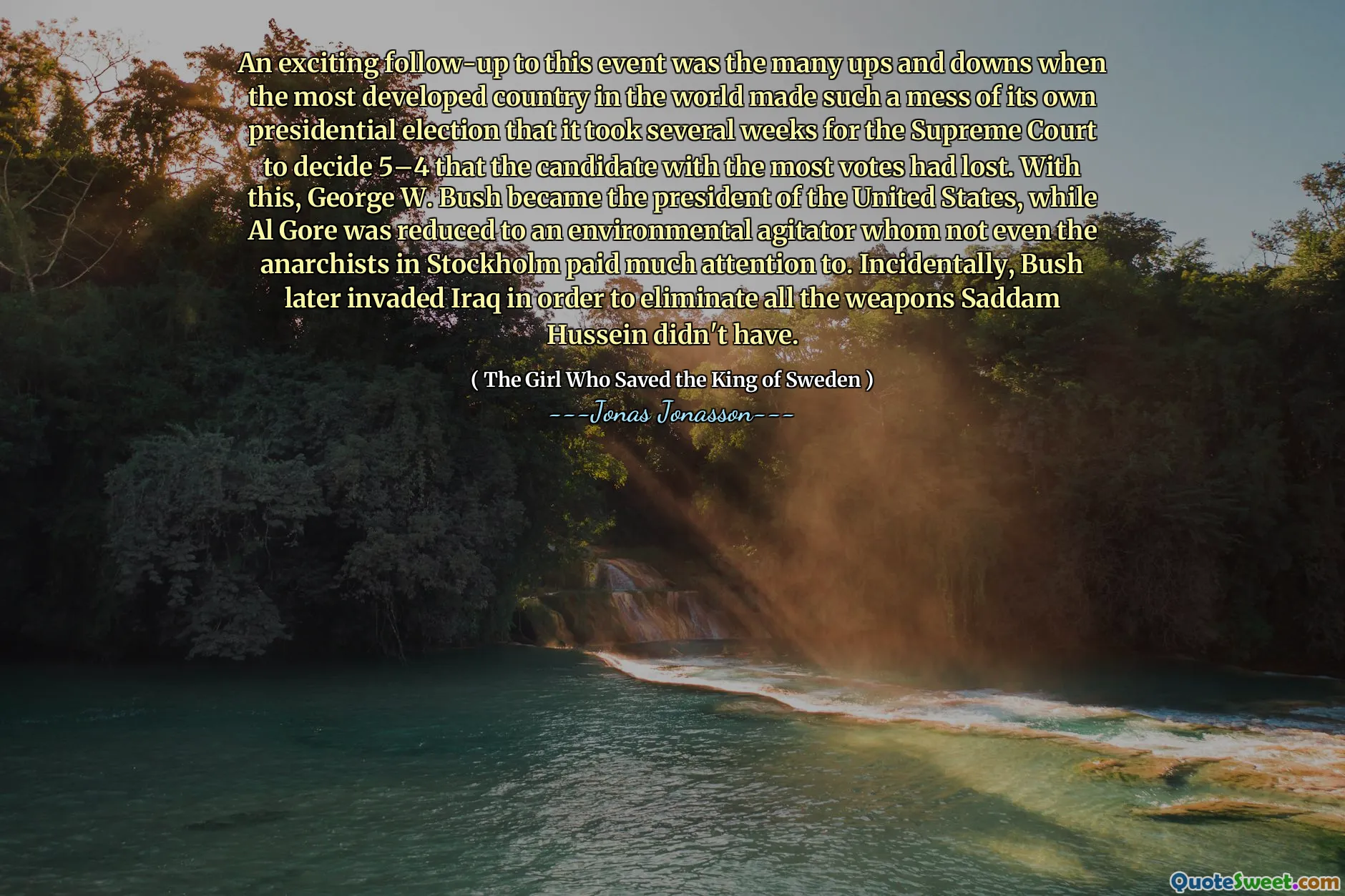
An exciting follow-up to this event was the many ups and downs when the most developed country in the world made such a mess of its own presidential election that it took several weeks for the Supreme Court to decide 5–4 that the candidate with the most votes had lost. With this, George W. Bush became the president of the United States, while Al Gore was reduced to an environmental agitator whom not even the anarchists in Stockholm paid much attention to. Incidentally, Bush later invaded Iraq in order to eliminate all the weapons Saddam Hussein didn't have.
The narrative reflects on a significant moment in U.S. history when the presidential election ended in controversy. After weeks of uncertainty, the Supreme Court's narrow decision awarded the presidency to George W. Bush, even though he had received fewer votes than his opponent, Al Gore. This event underscored the complications of the American electoral system, highlighting how a democratic process could lead to such an unexpected outcome. Gore's transition from candidate to environmental advocate marked a distinct shift in public discourse following the election.
The mention of Bush’s subsequent invasion of Iraq adds another layer to the discussion, illustrating the disconnect between political rhetoric and reality. The goal to eliminate weapons that were never proven to exist raises questions about the motivations behind the invasion and the impact of U.S. foreign policy. Overall, this episode serves as a reminder of the unpredictability in politics and the long-lasting effects of electoral decisions, as well as the complex roles that leaders adopt over time.






